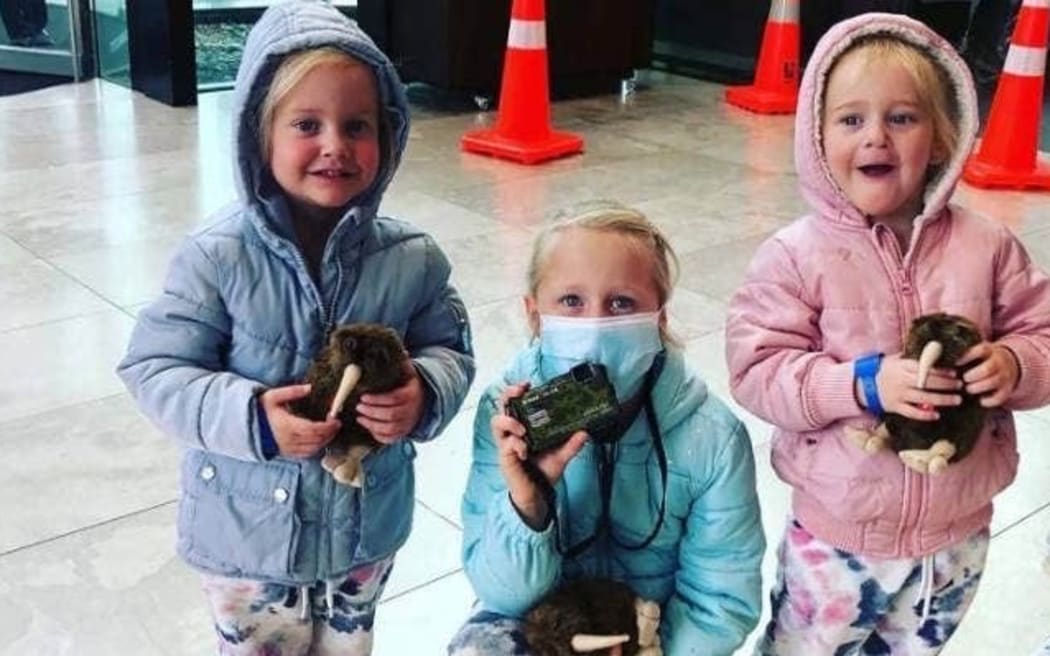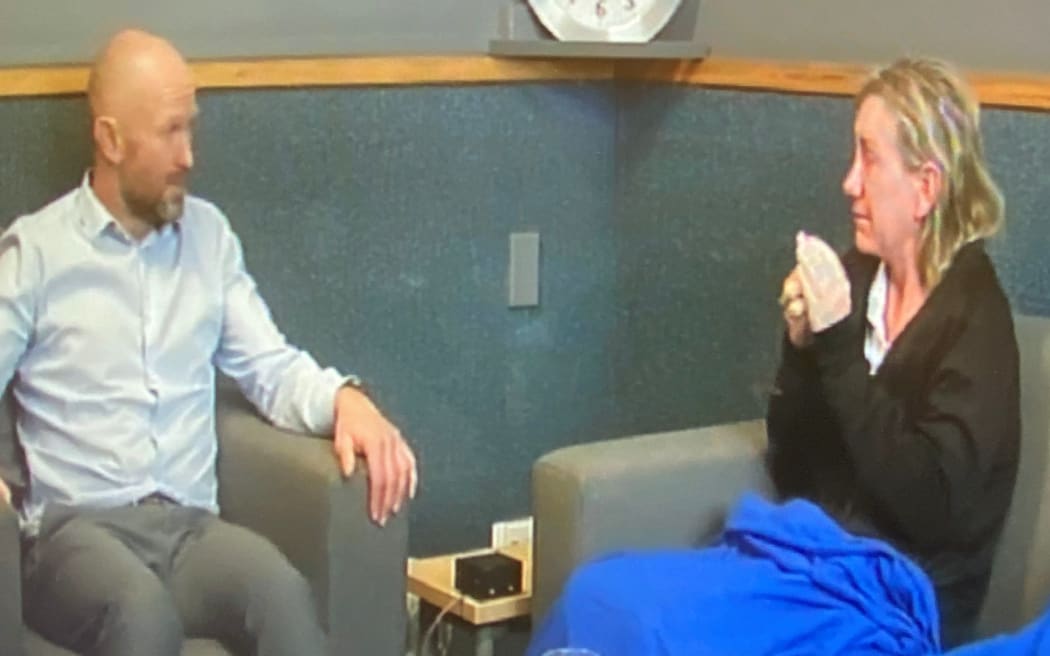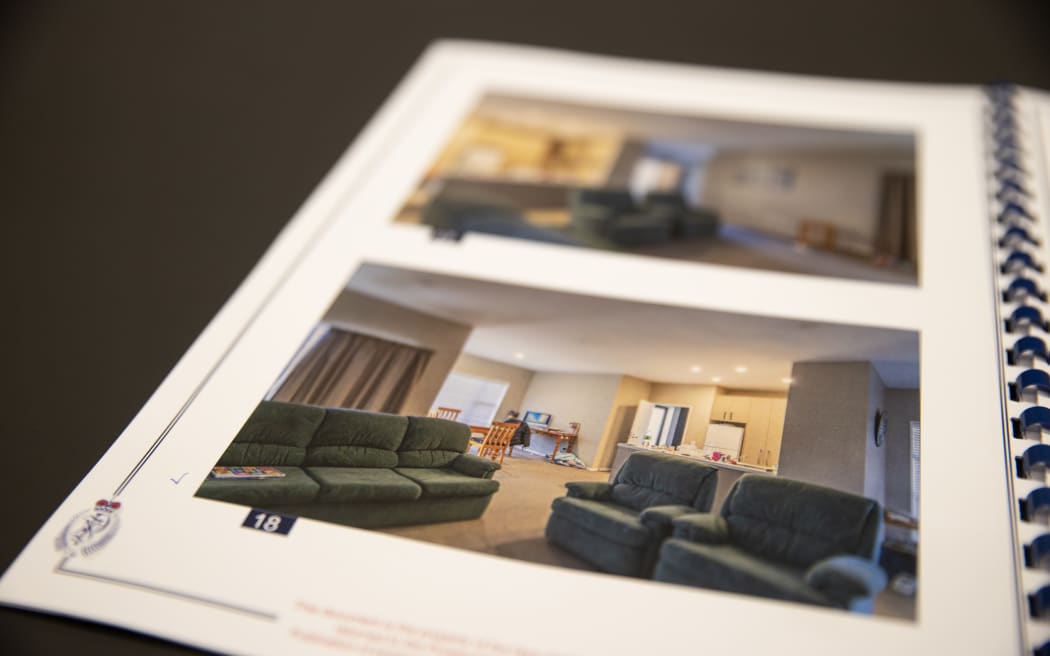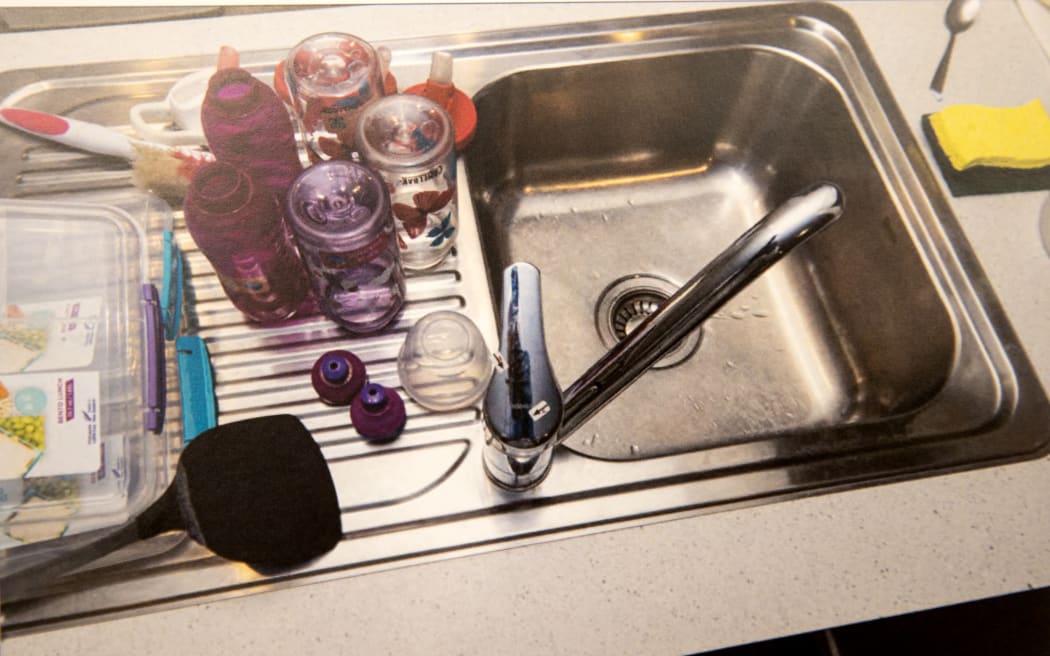Lauren Dickason trial: Jury finds mother guilty of murdering her three daughters
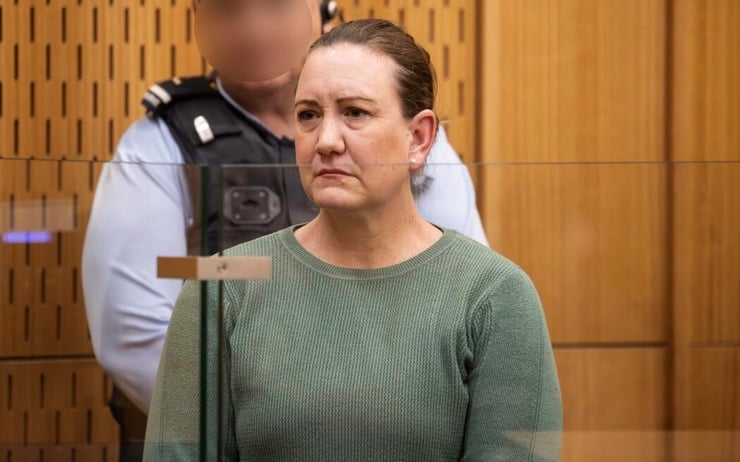
Warning: This story contains distressing content.
Lauren Dickason murdered her three young daughters, a High Court jury has found.
Dickason was charged with murder after admitting to killing her children - two-year-old twins Karla and Maya and six-year-old Liané - at their Timaru home on 16 September, 2021.
Her husband, Graham, found them dead in their beds when he arrived home from a dinner with work colleagues.
It took the jury of eight women and four men just over 14 hours to reach the majority verdicts (11-1) in Christchurch, following a four-week trial.
They did not find her insane at the time of the killings.
Jurors were heard audibly crying as they left the courtroom.
Lauren Dickason stood motionless in the dock as the verdict was read out, quietly crying as she left.
Parents react
Following the verdict, Dickason's parents said it was a debilitating mental illness which resulted in the deaths of her three young children.
In a statement, her parents Malcolm and Wendy Fawkes said their beloved Lianè, Karla and Maya were taken from this life as a result of the "crippling disease" that is post-partum depression.
"There are no winners in this tragedy. We would like to encourage families and individuals around the world to be aware of the symptoms of post-partum depression as early as possible, both for yourselves as well as close family and friends around you. If treated early and managed correctly, people can experience a full recovery.
"The person experiencing depression and those closest to them may not be able to recognise the signs or how serious post-partum depression can become."
They thanked the people of New Zealand, South Africa and from around the world for their support and understanding.
The trial
The trial spanned just more than four weeks and included evidence from first responders, psychiatrists, family members, friends and police.
Dickason's defence, led by Kerryn Beaton KC, was built around the arguments of insanity and infanticide, while the Crown argued Dickason knew when she killed her daughters that what she was doing was morally wrong and the act was murder.
Selections of messages from more than 135,000 present on Dickason's phone and some of her internet search histories were used to support the lawyers' cases.
The defence read messages which painted a picture of a hands-on mother who helped out at preschool and school, threw elaborate parties and cared deeply for her daughter's safety. Dickason spoke of loving the stage of life her girls were at and how she "wished they could stay this big forever".
But those read by the Crown described a mother who was overwhelmed, exhausted and struggling to manage her mental health while parenting three young children. Their messages spoke of anger towards her children and "murdering" them on numerous occasions.
Search histories entered into evidence covered multiple entries for "drug overdoses in children" or "lethal doses" of different medications in children, but there were also results on how to deal with anxiety stemming from emigration and Covid-19.
Liané, 6, sits between her twins sisters Maya and Karla Dickason, 2. Photo: Supplied
The girls' father, Graham Dickason, told the court during the trial the family had moved to Timaru from Pretoria, South Africa, less than a week before the deaths, in search of a safer future for their daughters.
In July 2021, hundreds of people lost their lives across South Africa as civil unrest broke out in the streets.
At the same time, some regions had surpassed 500 days in various stages of Covid-19 lockdown and load-sharing had begun too, leaving homes across the country without power for hours at a time in winter, as the electricity grid buckled under demand.
The uncertainties took a toll on Lauren Dickason, who had battled with her mental state from a young age - having first been diagnosed with a depressive disorder and anxiety as a teenager.
She was trying to finalise her family's move - filling out paperwork for visas, booking plane tickets, movers and spots in Managed Isolation and Quarantine (MIQ).
One July evening, a violent vision of harming her children flashed into her mind, shocking her to tears.
"She said that 'everything was unravelling'. She said that Graham [her husband] told her that if anyone could hear her, they would lock her up and she would never see the girls again," defence expert witness and forensic psychiatrist, Dr Susan Hatters-Friedman, told the court.
"She further said that she was feeling she was not coping anymore. Graham asked whether she needed to see the psychiatrist again and asked if she could promise not to hurt them. And she promised."
Lauren Dickason being interviewed by police in Timaru Police Station on 17 September, 2021. Photo: Supplied
It was the second time Dickason had encountered this sort of vision, and it was not the last - she had another a few weeks out from their flight to New Zealand - but did not tell anyone.
By now, anxiety was gnawing away at her. She was barely sleeping, only managing a few hours a night, and had become so nauseous, she could not eat.
Dickason's mother, Wendy Fawkes, saw the family the day before they boarded their flight. Her daughter's appearance shocked her.
"Lauren had lost an extreme amount of weight. She looked frail, and that this whole [emigration] process could push Lauren over the edge. By that, I mean she could have some form of mental breakdown," she said.
Her husband had hoped moving to New Zealand would allow Dickason to relax, but instead, she continued to plunge into the lowest mood she had experienced.
"She explained that New Zealand was not at all what she had envisioned. She had no help at the airport when struggling, she felt there was 'chaos' with school and housing and 'total culture shock'," Hatters-Friedman said.
"She said that the kids had regressed and that she had no time alone with Graham. She noted that all of her support structures were gone."
A request for further documents from Immigration New Zealand the day before she killed her daughters only added stress.
Court photos show the inside of the Dickason house in Timaru. Photo: Pool / NZ Herald / George Heard
Dickason told all five psychiatrists who acted as expert witnesses in the trial that she felt she "couldn't go on" the night of 16 September, 2021.
Her husband was out with new work colleagues for dinner and the girls were acting up.
Crown expert witness, forensic psychiatrist Dr Erik Monasterio, said Dickason described feeling like "a shaken up bottle of coke, ready to explode".
It was agreed Dickason killed her daughters and attempted her own death that night - and was mentally unwell when it happened.
But the expert witnesses, who spent hours assessing Dickason, clashed over whether she was clouded with a depressive episode or post-partum depression.
Those supporting the defence case believed Dickason had never gotten over a decade-long fertility journey that involved a still-birth and post-partum depression. She had also become delusional at the time of killing her children, they said.
Hatters-Friedman told the court Dickason killed her children "out of love".
"Mothers who are suicidal are also at risk for infanticide. Such women may plan a so-called extended suicide with the altruistic belief that their infant is better off in heaven with their mother than remaining alive and motherless, in what the depressed mother sees as a cruel and uncaring world," she said.
"Killing her children seemed right... she noted the world was gripped by the Covid pandemic, that everyone was wrapped up in cellphones and she was concerned about the future and all the worries ahead of her," Dr Justin Barry-Walsh told the court.
"She considered her children would be better off dead."
Court photos show the inside of the Dickason house in Timaru. Photo: Pool / NZ Herald / George Heard
Crown witnesses argued it was a depressive episode stemming from the mood disorder Dickason was diagnosed with as a teenager. While severe, they believed she could still tell the difference between what was morally right and wrong.
"I agree there is a significant depression, but I disagree, on the basis of all of the evidence before me, placed on the balance of probability, that this can be attributed to the effects of childbirth," Monasterio said.
"How could it be... it was there already, a decade and a half before achieving pregnancy."
Forensic psychiatrist Dr Simone McLeavey said: "She denied any hallucinations in any sensory modality, e.g. no voices or visions in her ears or eyes only. She denied specifically hearing any voice or voices commanding her to act, with her alleged actions instead of her own volition.
Not wanting her children to have another mother figure in the event of her death was Dickason's primary concern, McLeavey believed.
"There was certainly no suggestion of infidelity, she was not of the opinion that her husband was having an affair and was likely to divorce her and move on and remarry. But she anticipated that if indeed she had suicided as she said she had intended, that the prospects of her husband remarrying and her children having another mother was an untenable proposition to her."
'Challenging and complex investigation'
In a statement, police said words could not "begin to express the tragic circumstances of this investigation".
"Police extend our deepest sympathies to the families who will never get to see Liané, Maya, and Karla grow up and live their lives," Detective Inspector Scott Anderson said.
"I would like to acknowledge the Dickason and Fawkes families who have assisted us throughout our investigation. I also want to take this opportunity to acknowledge the hard work and dedication of our investigation team.
"This has been a challenging and complex investigation right from attending the scene on the night, to the completion of the trial, and through it all our staff have worked diligently with professionalism and empathy to bring this matter to its conclusion.
"Our heartfelt thanks also to the Timaru community and partner agencies who have continued to provide support to the families during this case."
He said police had no further comments.
https://www.rnz.co.nz/news/national/495916/lauren-dickason-trial-jury-finds-mother-guilty-of-murdering-her-three-daughters



